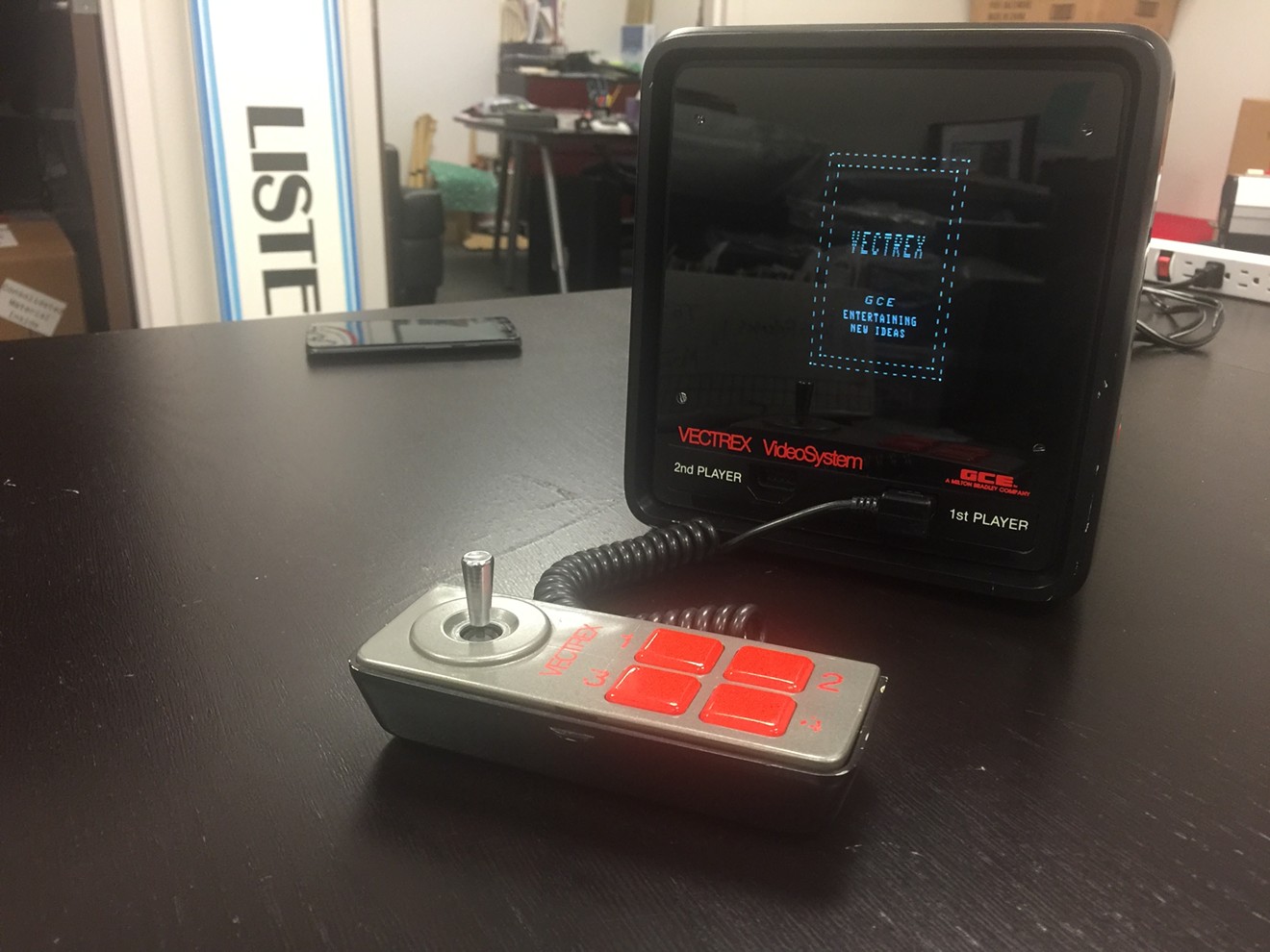Ask any hardcore gamer who grew up in the 1980s to name what they believe to be the first portable gaming console. They'd probably answer with the Entex Electric Baseball game or those tiny, white Tiger Electronics LCD games that their parents thought were just as good as a Sega Game Gear or a Nintendo Game Boy.
One they definitely won't mention is the Mini-Vectrex, a smaller but still sizable version of the Vectrex home console developed by General Consumer Electronics in the early 1980s. That's because even though the company built a working prototype, the console never went on the market.
The National Videogame Museum in Frisco has one of these working prototypes in their massive, permanent collection of gaming artifacts, acquired from an anonymous former GCE executive who held onto it for almost 35 years.
The Vectrex has earned a cult following among modern game collectors and classic gaming enthusiasts, but it was anything but
During Vectrex's financial fall, which also came on the heels of the video game crash of the early '80s, board game giant Milton Bradley purchased GCE along with the Vectrex brand in 1983 and commissioned a smaller, more portable version of the console that they called the Mini-Vectrex.
"It was a victim of the crash," Hardie says. "It killed any chance of it seeing the light of day."
If modern gamers saw the Mini-Vectrex, they might mistake it for a home gaming console given its still considerable size. Just like its predecessor, the portable console has its own screen, built-in game and the same handheld controllers that operate the original Vectrex and it's about as big and long as a cinder-block-sized, big-battery flashlight.
The smaller version also works the same as its home console since both have the same circuitry boards, and it plays just as well as its home console counterpart.
"For a prototype, it's pretty complete," Hardie says. "There's a lot of details that you wouldn't expect to see on a prototype."
The Mini-Vectrex is now part of the museum's permanent history, along with the only colorized Vectrex prototype and the original hand-built prototype of the original Vectrex console.
"It's just an amazing piece of gaming history that we were able to rescue," Hardie says, "and that it's survived all these years."












